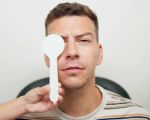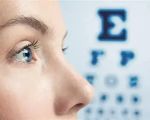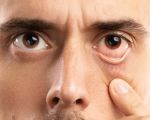- 1-Understanding-Eye-Focusing-Accuracy
- 2-Common-Causes-of-Poor-Eye-Focusing
- 3-Effective-Methods-to-Improve-Eye-Focusing-Accuracy
- 4-Real-Life-Examples-and-Personal-Insights
- 5-Professional-Support-from-Eye-Docs
1. Understanding Eye Focusing Accuracy
Eye focusing accuracy is the ability of your eyes to sharply concentrate on objects at various distances, ensuring clear and precise vision. This function is crucial for everyday tasks such as reading, driving, and using digital devices. When eye focusing accuracy diminishes, it can cause blurred vision, headaches, and eye strain, affecting your overall quality of life.
The eye’s lens changes shape through a process called accommodation to focus light correctly onto the retina. Maintaining good focusing ability is essential, especially as natural aging or lifestyle factors may impair this process.
2. Common Causes of Poor Eye Focusing
2.1 Age-Related Changes
Presbyopia is a common age-related condition where the lens loses flexibility, making it harder to focus on close objects. This typically begins after age 40 and gradually worsens.
2.2 Excessive Screen Time
Prolonged exposure to screens without breaks can lead to digital eye strain, reducing the eyes’ ability to focus accurately over time.
2.3 Refractive Errors and Medical Conditions
Uncorrected nearsightedness, farsightedness, or astigmatism can impair focusing. Additionally, conditions like diabetes can affect eye health and focusing precision.
3. Effective Methods to Improve Eye Focusing Accuracy
3.1 Eye Exercises and Visual Training
Regular eye exercises can enhance focusing ability by strengthening the ciliary muscles that control the lens shape. Techniques such as focusing on near and far objects alternately or using pencil push-ups are simple yet effective methods.
3.2 Proper Lighting and Screen Habits
Ensuring adequate lighting and following the 20-20-20 rule—taking a 20-second break to look at something 20 feet away every 20 minutes—helps reduce eye strain and maintain focusing accuracy.
3.3 Use of Corrective Lenses
Wearing prescription glasses or contact lenses tailored to your needs can significantly improve focusing performance. Specialized lenses like progressive or multifocal glasses address focusing at multiple distances.
3.4 Healthy Lifestyle and Nutrition
Maintaining a balanced diet rich in vitamins A, C, and E supports eye health. Staying hydrated and managing chronic conditions also contribute to better focusing ability.
4. Real-Life Examples and Personal Insights
Jennifer, a graphic designer, noticed her focusing accuracy declining after long workdays. By integrating daily eye exercises and adjusting her screen setup, she experienced less eye fatigue and sharper vision within weeks. Her story underscores the practical benefits of simple, consistent habits.
Similarly, Robert, in his mid-50s, found relief from presbyopia symptoms after consulting with professionals and switching to multifocal lenses. His improved focusing helped him regain confidence in reading and driving.
5. Professional Support from Eye Docs
When you seek to improve your eye focusing accuracy, consulting experts at Eye Docs provides personalized assessments and advanced treatment options. Their expertise helps identify underlying issues and recommends customized solutions such as vision therapy, updated prescriptions, or lifestyle adjustments.
Relying on professional guidance ensures your eyes receive the best care possible, helping you maintain clear, comfortable vision for years to come.








